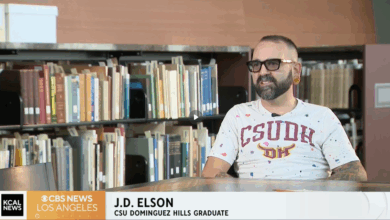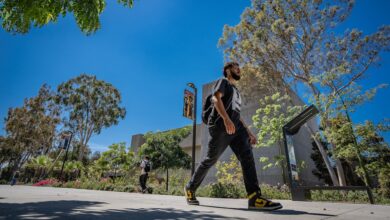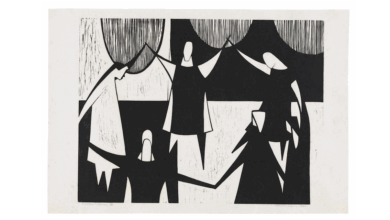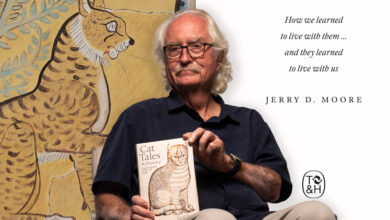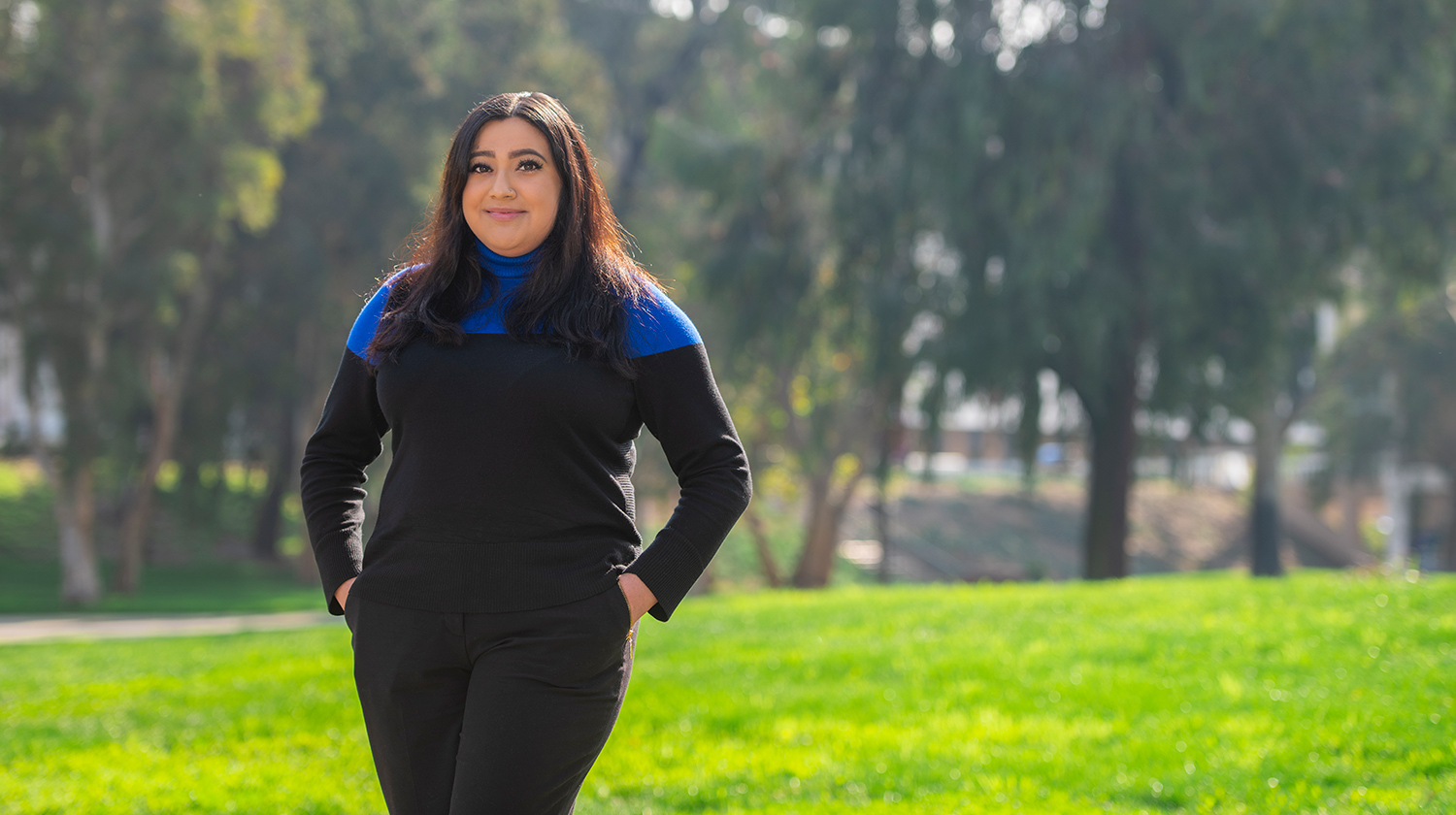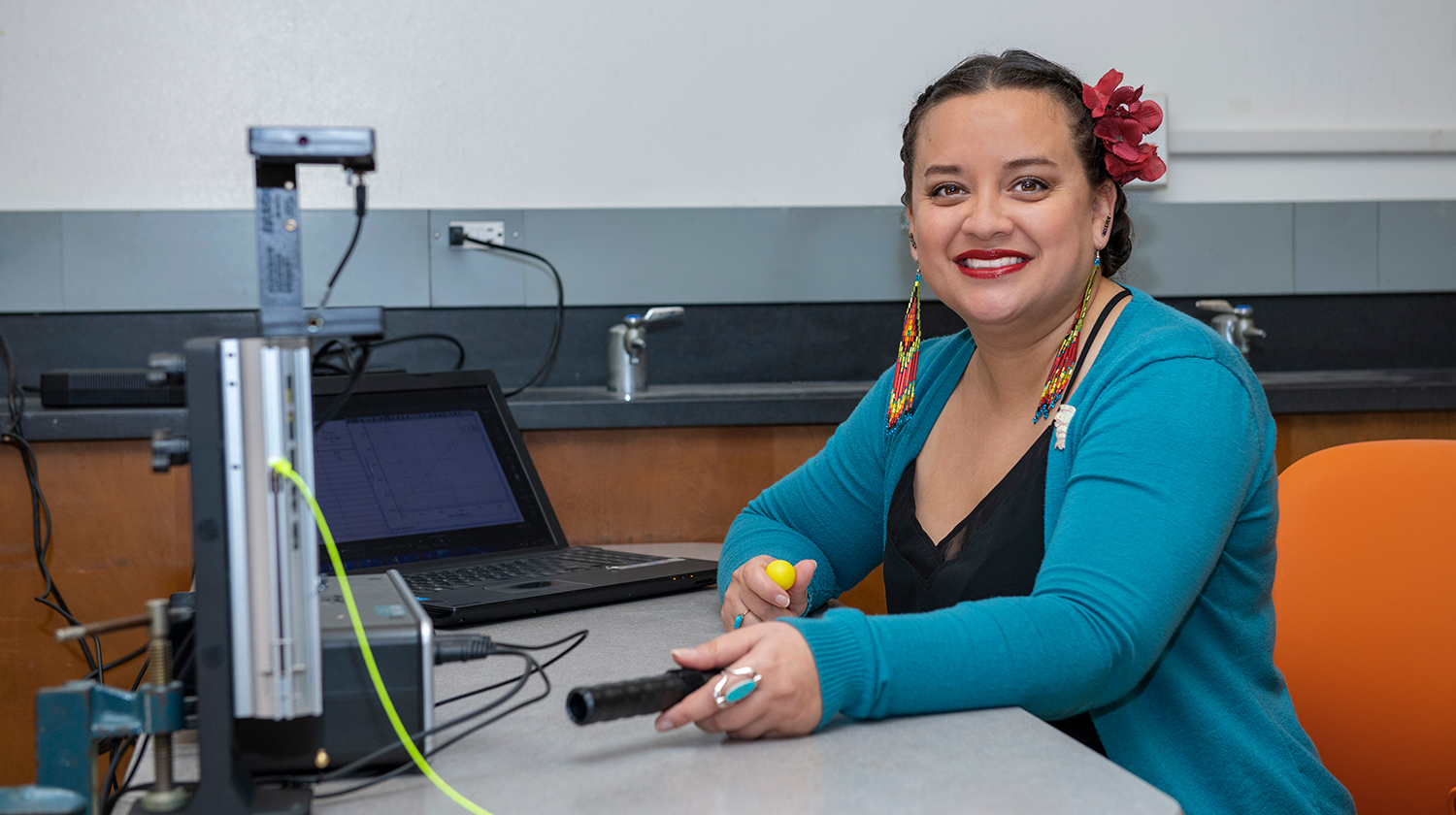
Ximena Cid is more than an accomplished physicist, she’s also a self-described “vocal advocate for women and black, indigenous, and people of color” participating in physics, space, and other hard sciences.
The California State University, Dominguez Hills physics professor is considered a trailblazer in the field, a status that was confirmed with her recent selection as a delegate to the International Conference on Women in Physics.
Cid is one of just 20 female scientists nationwide selected for the conference, which is sponsored by the International Union of Pure and Applied Physics (IUPAP) and will take place in Melbourne, Australia this July. It’s a great honor, and one that extends beyond the five days of the conference.
“It’s a three-year commitment,” says Cid. Because the conference is only held every three years, delegates are encouraged to stay connected throughout the interval. “We’re going to the conference and sharing all of our knowledge amongst our fellow participants, and then we’re bringing it back here. We’ve been asked to think about how we can share the information we learn within our own home spaces.”
The IUPAP International Conference on Women in Physics will be held in Melbourne, Australia, July 13-17, 2020.
The IUPAP is an organization devoted to promoting universal access to science education. The conference is an opportunity for scientists from all over the world to work together toward the goal of improved gender equity in their disciplines. In the U.S., women receive only about 20 percent of the bachelor’s degrees conferred in physics, a number that has stayed fairly steady for the past two decades, Cid says.
“Some countries, like the Nordic nations, don’t have the same issues around gender that we do in the States,” says Cid. “I’m interested in creating international collaborations around how these issues are framed. How do different countries address these issues, and why do some solutions work in some spaces but not in others?”
Cid keenly understands the impact of gender and ethnic disparities. She identifies as Chicana and Yaqui, and is one of only six indigenous Ph.D. holders in physics/astrophysics in the country. Cid is also one of about 20 Hispanic women working as physics faculty in bachelor’s-granting institutions in the U.S.
Part of the U.S. delegation’s mission will be creating a unified message about gender equity to bring to the conference. “We’re all in different spaces, so we all have different experiences,” Cid explains. “Someone who’s here at Dominguez Hills works with a very different population than someone in Kansas, or in upstate New York.”
“We will think about the message we want to send as a cohort. How do we want to represent the United States, and how can we create that unified understanding that will allow us to share that message? How can we start to discuss, locally and nationally, what we’re learning and what are the best practices to improve access to science for women and minoritized communities?”
“I’m really curious to see how science history is described in other countries,” says Cid. “Who’s included and who’s not included? Here, we tend to talk about science from a Eurocentric perspective, even though the oldest book found in the Americas is an astronomy book from the Mayan civilization! That kind of thing influences how we see ourselves in these spaces, and sometimes how we view ourselves as well.”
Overall, it is the creation of an international network of like-minded scientists and scholars that excites Cid the most. “I’m just curious to see what other people are doing! Then we can start to create the global conversations about these issues, and see what we can do to solve them.”

